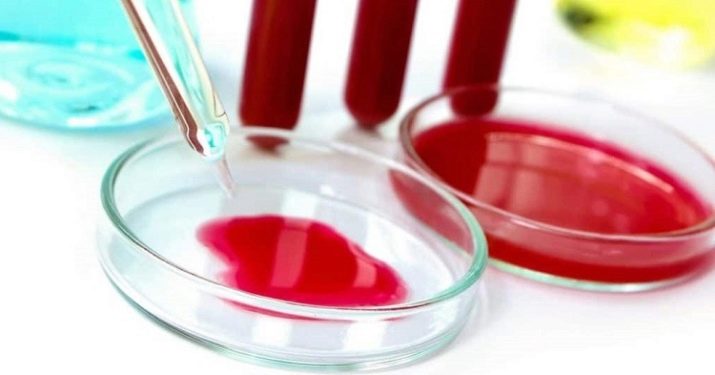Allergy to coffee: how to manifest and how to treat?

Food allergies are not uncommon. It can occur on any food product. And coffee, as it turned out, is no exception.
The reasons
The coffee beans from which the aromatic beverage is produced are the product of the coffee tree. The plant and its fruits contain a large amount of caffeine alkaloid. Thanks to him, the coffee drink is one of the potential allergens. They say that coffee allergy happens more often than strawberries. The greatest amount of caffeine is found in natural black coffee. And it does not collapse at any stage of the preparation of a drink: neither when roasting grains, nor when they are brewed. On the contrary, its concentration may increase.
But do not assume that by replacing a natural black product with other types of it, you will save the situation. Instant coffee, although containing very little alkaloid, can also cause allergies.
Instant coffee is all the same coffee beans, but thoroughly ground to a powdered or granular form. The grinding process leads to the loss of essential oils and other components responsible for taste and aroma.
To correct the situation, the coffee powder is mixed with chemical additives, dyes and flavors. Here they also tend to cause a hypersensitivity reaction.
Another type of coffee is green. The most useful of all coffee varieties, because its grains are not subjected to heat treatment, and the amount of caffeine in it is minimal. But even he carries with it the likelihood of allergic reactions due to the high content of chlorogenic acid. On the one hand, it is an important component for our body, as it takes part in many physiological processes. On the other hand, it can be a provocateur of undesirable reactions.
It should be noted that, despite the fact that coffee can cause a hypersensitivity reaction, it does not cause such manifestations in all. It is important to know that, along with drink allergens, there are predisposing factors of our body that increase the risk of developing allergies:
- individual intolerance to the body;
- diseases of the digestive tract;
- immune system disorders;
- drink abuse;
- use of low-quality product.
Symptoms
Hyperargic reactions to coffee are manifested in the same way as other allergens.
From the skin:
- hives;
- pruritus;
- hyperemia;
- peeling, blisters.
From the digestive system:
- stool disorders;
- nausea, vomiting;
- pain and heaviness in the abdomen.
On the part of the respiratory system:
- dyspnea;
- allergic rhinitis;
- sneezing
You should pay attention to symptoms such as hyperthermia, headaches, tachycardia. Sometimes some manifestations can occur even with the smell of coffee: sneezing, dizziness, tachycardia.
For a special category of people, an invigorating drink can become especially dangerous and cause an immediate allergic reaction — angioedema. It develops very quickly, just a few minutes after the provoking agent enters the body. And accompanied by difficulty breathing and bouts of suffocation.
Remember that coffee is a drink for adults. Children, its use is undesirable. They are more likely to develop allergies and other complications.
Therapy
Treatment of coffee allergy will depend on the degree of its manifestation and the cause of its occurrence. If you are sure that the hypersensitivity reaction was caused by a coffee drink, you will have to refuse to accept it. But temporarily or permanently - that is the question.
If the cause was an overdose of coffee, then the deprivation will be temporary, only at the time of therapy. When you feel lighter, you can gradually return your favorite product to the diet.
In the case when allergies are caused by individual sensitivity or diseases of the gastrointestinal tract, you will most likely have to give up the drink completely or until complete recovery.
To find out if you really have an individual intolerance to a drink, there are special tests:
- intracutaneous test, in which the allergen in a small amount in a certain solution is injected into the upper layer of the skin and watch the reaction - redness indicates the presence of an allergy;
- hair diagnostics;
- blood test for the presence of antigens.
Direct treatment depends on the severity of symptoms. With urticaria and itching, it is enough to drink several days of antihistamines. Which ones - choose according to your preferences.
If the skin elements are particularly pronounced, they are treated with anti-allergic lotions or ointments.
In dyspeptic disorders, antidiarrheal agents and enzymes are added to the treatment.
To eliminate the common cold nasal drops are used.
If allergic manifestations do not pass, and the condition worsens - new elements appear on the skin, the temperature rises and the general condition is unsatisfactory - they include detoxification therapy with intravenous drip solutions, parenteral administration of antihistamines and hormones, sorbents.
For mild allergies, you can use traditional methods. The most common of these is the mummy-based solution:
- In 1 l. water, add 1 gr. mummy;
- Drink 1 time per day in an amount of 100 ml.
Another means is a decoction of the series. For its preparation you need 1 tbsp. l herbs pour 200 ml. boiling water. Insist 15-20 minutes and drink in the morning instead of a cup of coffee. It is worth paying attention to its color. It should be golden. Greenish, cloudy solution is not suitable for use.
For any form of allergy, it is recommended to drink more fluids. This will replace its intravenous administration and accelerate the removal of allergens from the body. Also note that if you have a reaction to coffee, you should use cocoa and teas with caution, as they also contain caffeine.
Prevention
To prevent the development of hypersensitivity reactions, you need to properly take a drink. This means that they should not be abused. The daily dose of pure caffeine should not exceed 400 mg. At the same time in different types of this drink its content is unequal:
- American: 80-130mg;
- European coffee: 110-180mg;
- espresso: 80-100mg;
- soluble: 60-100mg.
To soften the effect of caffeine and reduce its entry into the body, milk and cream are added to coffee. They bind the alkaloid and partially inactivate it. For example, a cappuccino cup contains about 80 mg. caffeine. For people with stomach ailments, drinking coffee is generally undesirable. But, if, after all, you cannot deny yourself this pleasure at all, then reduce its reception to 1 cup per day. Let it be a weak drink, preferably with milk.
Try to drink quality coffee. If you have a tendency to allergies, try not to change their favorite, proven varieties in search of new taste sensations. Soluble coffee product is not recommended at all. As a rule, it is made from low-grade grains. High-quality varieties are usually sold in natural form.
How to replace coffee in the diet?
If you had to abandon coffee, for sure you are looking for a decent alternative.
But note that teas, both black and green, will not be a suitable substitute for you. The caffeine content in them is impressive, and in green tea even more than in coffee. For the same reason, do not rely on cocoa.
The perfect option for you will be chicory. This powder is obtained from roasted perennial root. It is similar in quality and taste to coffee. This drink invigorates, tones and refreshes, but almost does not contain the ill-fated alkaloid. And applies to hypo-allergenic products.
Chicory is not only a safe, but also a useful substitute. It strengthens the immune system, saturates the body with vitamins, regulates the level of glucose, improves digestion.
Herbal tea has a wonderful tonic effect. For example, pink, with the addition of tea rose or hibiscus. Red tea pigments strengthen the heart and blood vessels, normalize blood pressure.In addition, it shows an excellent detox effect and even reduces the tendency to allergies.
An infusion of ginger or ginseng root is an energy boost for the whole day. It is also a good source of vitamins and minerals. It has a cardiotonic effect.
A variety of herbal tea is mate, which in South America is called the drink of the gods. It is made from Paraguayan holly. Shows antioxidant properties, soothes the nervous system and gives a healthy sleep.
You can also drink a cup of mint tea in the morning, it is refreshing and uplifting.
Allergy to coffee, of course, will make its own adjustments to your diet. And you will have to reconsider your coffee habits. But, even if you are forced to abandon it completely, do not be discouraged. You can find a worthy replacement for yourself that will delight you with its taste and action.
How to find out what you are allergic to, see the next video.






























